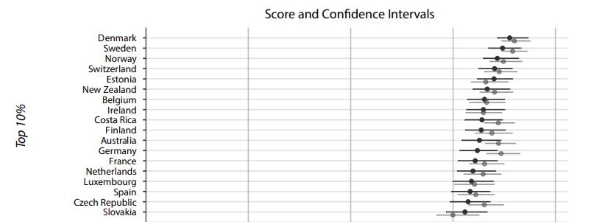On September 15th, we celebrate International Day of Democracy. This day is an opportunity to reflect on the importance of democracy and to work to strengthen democratic institutions around the world.
Democracy is a system of government in which the people have the power to choose their leaders and make decisions about how their country is run. It is based on the principles of freedom, equality, and justice.
Democracy is a fragile institution. It requires the active participation of citizens and the commitment of leaders to uphold democratic principles. There are many threats to democracy, including corruption, inequality, and authoritarian regimes.
Despite these challenges, democracy remains an essential institution for promoting peace, prosperity, and human rights. Democratic countries are more likely to be peaceful and stable, and they tend to have better economic performance and higher levels of human development.
Freedom
— United Nations (@UN) September 14, 2023
Human rights
Free & fair elections
↪️ These are the essential elements of democracy.
More on Friday’s #DemocracyDay: https://t.co/Ng4TCszNce #StandUp4HumanRights pic.twitter.com/9ARQ6xGW4g
Democracy enables people to have a say in their futures.
— United Nations (@UN) September 15, 2023
Everyone should be able to meaningfully participate in decisions that will affect their lives now, and in years to come.
Friday is #DemocracyDay. https://t.co/Ng4TCszNce pic.twitter.com/J4OgKWn6aQ
It's #DemocracyDay.
— UN Women (@UN_Women) September 15, 2023
Democracy, sustainable peace and conflict prevention cannot be achieved if women are left behind.
Repost if you agree! pic.twitter.com/SNC3hNIPTC
What Is the History of International Democracy Day?
This day was established by the United Nations General Assembly in 2007 through a resolution titled "Support by the United Nations system of efforts of Governments to promote and consolidate a new or restored democracies."
The resolution was adopted by consensus, reflecting the strong global commitment to democracy. It recognizes that democracy is essential for promoting peace, prosperity, and human rights.
The date of September 15th was chosen to commemorate the adoption of the Universal Declaration on Democracy by the Inter-Parliamentary Union (IPU) on September 15, 1997. The Universal Declaration on Democracy is a landmark document that sets out the fundamental principles of democracy
The UN mentions in the summary that the resolution “recognizes that the Organization has an important role to play in providing timely, appropriate and coherent support to the efforts of Governments to achieve democratization within the context of their development efforts.”
What Is the Significance of International Democracy Day?
International Day of Democracy is significant because it is an opportunity to:
- Reflect on the state of democracy around the world. This includes identifying the challenges that democracy faces, as well as the progress that has been made.
- Strengthen democratic institutions. This can be done by supporting independent media, civil society organizations, and elections.
- Celebrate the achievements of democracy. This includes the freedoms and rights that democracy protects, as well as the contributions that democracy has made to peace, prosperity, and human development.
- Reaffirm the commitment to democratic values. This includes the principles of freedom, equality, and justice.
The theme for International Day of Democracy is “Empowering the Next Generation” and it focuses on engaging more and more young people in advancing democracy.
Young people are essential to the future of democracy. They are the ones who will inherit the world that we are building today, and they will be the ones who are most affected by the decisions that we make today.
Young people have a unique perspective on the world. They are more likely to be open to new ideas and solutions, and they are more likely to be concerned about the long-term impact of our decisions.
They are also more likely to be digitally connected. This gives them a powerful platform to share their ideas and mobilise others.
Which are the Top 10 Countries as per the Electoral Democracy Index 2023?
In a world where democracy is under threat, many countries have demonstrated a commitment to free and fair elections, as well as to other essential elements of electoral democracy, such as freedom of expression, association, and assembly.
Here are the top 10 countries according to the Electoral Democracy Index 2023:
- Denmark
- Sweden
- Norway
- Switzerland
- Estonia
- New Zealand
- Belgium
- Ireland
- Costa Rica
- Finland

Source: V-Dem
The Electoral Democracy Index is a measure of the quality of electoral democracy in countries around the world. It is compiled by the V-Dem Institute, a research institute at the University of Gothenburg in Sweden.
The index covers a wide range of factors, including the fairness of elections, the level of competition between political parties, and the freedom of the media.
These countries are all characterized by high levels of electoral integrity, freedom of expression, and political competition.
They also have strong institutions that support democratic governance, such as independent judiciaries and free media.
India gains 108th spot according to this report. This ranking is far below those of Tanzania, Bolivia, Mexico, Singapore, and even Nigeria, which comes in at a modest 91st.
This ranking is a shock to many, but it is also a wake-up call. India's democratic institutions have been under sustained attack in recent years, from the erosion of freedom of the press to the rise of Hindu nationalism.
These attacks have weakened India's electoral democracy and made it more vulnerable to authoritarian tendencies.
Comments
All Comments (0)
Join the conversation